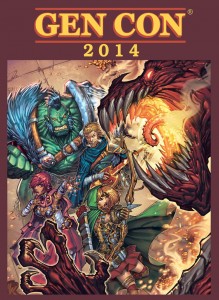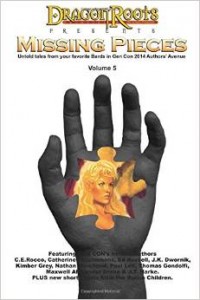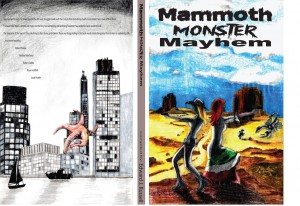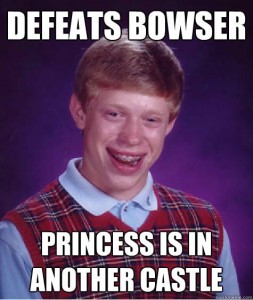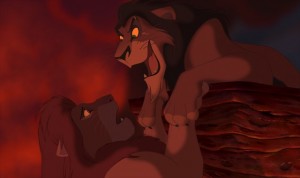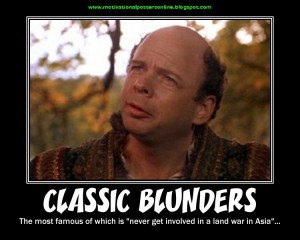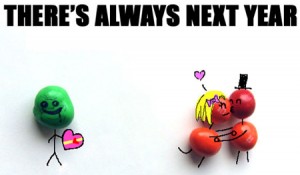It’s been a week since Gen-Con 2014 ended, and as usual, I miss it. Not only does Gen-Con have a great Authors’ Avenue where I can sell books and a great Writers’ Symposium where I can attend seminars, it’s one of the few places I can be an unbridled nerd and nobody judges me.
If you follow me on Facebook (and if you don’t, you should), you saw my almost up-to-the-minute updates while my brother Jarod and I were at the four-day convention. There’s a lot I could write about, but for now I’ll focus on a few highlights not mentioned in those posts. UPDATE: More photos from Gen-Con have been posted on my Facebook page!
Want to see photographs from the convention? I recommend checking out my Facebook page. Until I figure out how the new photo gallery plug-in I downloaded works, that’s where I’ll be posting photos from signings and such. Sorry.
First, here are the fans/readers I met while I was at the con, both new and old.
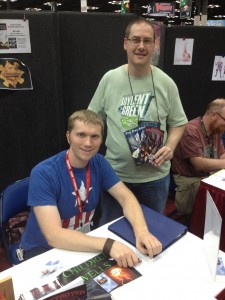

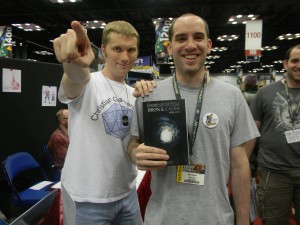
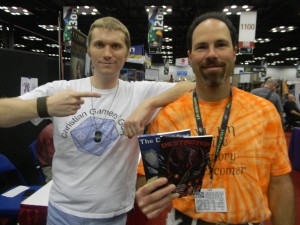
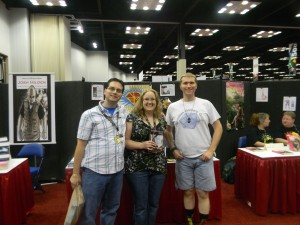

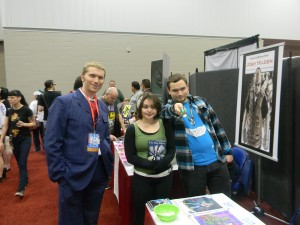
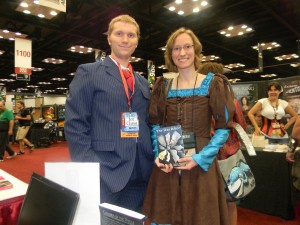

This was Jarod’s first time at Gen-Con, though it wasn’t his first convention. He’s gone with me to several others this year as attendees. We made prints of the illustrations he’s done for my short stories and the titles cards he’s made for my YouTube show, “But I Digress…”. Unfortunately, for whatever reason, we weren’t able to sell any of these. I was shocked. Conventions seemed like the places where people would eat up his artwork. Perhaps it was because we were in the authors’ section and not the art show area. Regardless, he did manage to get a pair of commissions: one for a steampunk pin-up girl a guy wanted for a restaurant he wants to start called Pandora’s Lunchbox (he told us about it because of the title of my novel), and another for a con-goer who wanted little pictures of Wile E. Coyote and a Digimon for a Magic: The Gathering card. Jarod also drew a few random sketches during our downtime, especially when things were slow on Thursday, including Maleficent, a ballerina Dalek (no joke), and a ninja Elsa. He gave the last one to a Jedi Elsa cosplayer, who inspired the artwork.
As for my book sales, they were slow again this year. I took fewer books with me assuming I’d sell out, but I didn’t. I got a few bits of advice from my fellow writers on how to improve that:
1) Get new signs. I’ve been using Jarod’s handmade sign for three years now. It’s time I upgraded. It’ll help me look more professional.
2) Have more books. For whatever reason, people will be more interested in buying books when they have more choices. I thought the opposite was true, but I think it would diversify my appeal and show people I’m still writing.
It didn’t help that the new books I wanted to take—Children of the Wells, Volume 1—didn’t arrive in time, so I wasn’t able to sell them until Saturday. Even so, that was a bit of tough sell since I wasn’t in that collection (but I’ll be in volume two).
However, I think my networking was much-improved this year. I talked with more of the writers there and shared my business cards with them. I think I even found a publisher interested in seeing Ninjas and Talking Trees. J Hopefully, in the coming year, that will all pay off.
As usual, while other vendors were too tired to enjoy the convention after the exhibitors’ hall closed, I was still running around with boundless energy like the Doctor. (In fact, I cosplayed as the 10th Doctor while I was there on Sunday).
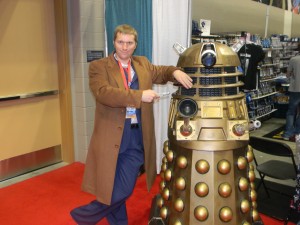
I attended many writing seminars since many of the other events I wanted to attend were sold out. (I waited to sign up since I was on the waiting list for months and wasn’t sure I’d make it to the convention). Regardless, I was still able to participate in an “Ultra Street Fighter IV” tournament Friday night and see the Five Year Mission show Saturday night. I wasn’t able to play any board games, though.
Overall, I don’t think it was quite as good of an experience as last year’s convention, but I still want to return next year. That, sadly, is uncertain since the organizers didn’t allow writers and artists an early sign up at the end of the convention like they usually do. I have no idea when tables will be available. On the bright side, I could have as many as three new titles to sell at next year’s convention if all goes as planned (more on that later).
See you next year, Gen-Con!

